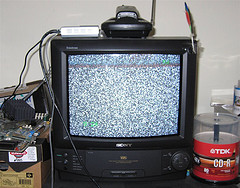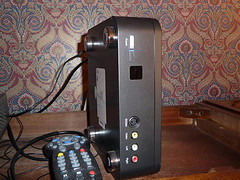The FCC has issued an order amending its rules to allow cable operators to encrypt the basic service tier. This tier consists of broadcast and a few other assorted stations.
Their rationale for this is that it will ‘benefit’ consumers who can have their service activated and deactivated remotely, reducing truck rolls and waits for service calls. Â The problem is the “small number” of cable subscribers who will be adversely affected.
A few years ago, you could change channels directly on your TV. These were cable channels…channels you paid for. You are still paying for them, but now you have to pay to rent equipment from the cable company. The current cost of a box from our cable provider is $10 a month, plus a $4 fee. To rent a cable card is only $2.50, by comparison.
This is an issue. The $90 a year difference would pay for a cable box purchase in two years, or pay the additional cost to add a cablecard slot to the average television. This has not happened.
As a condition of the FCC Rule, operators must provide either a converter box with home networking capability that can provide access to basic channels or allow existing equipment access with software upgrades. But, we have some doubts as to the utility of these devices.
As a user of open-source software, it is unlikely that they will allow anything to be used that they cannot control. So, in the end, it is time to break out the broadcast antenna.
There is, of course, the cablecard option, however, Time Warner Cable, our local cable company, is the only company to make a cablecard essentially useless to a Linux user.
Maybe it is time to cut the cord. That’s still an option, right? You can get Internet without TV, right?
Related articles
 FCC to allow encryption of basic cable, with a few strings that Boxee approves of(engadget.com)
FCC to allow encryption of basic cable, with a few strings that Boxee approves of(engadget.com)
 Boxee Welcomes FCC Rulemaking That Opens Door for Innovation(boxee.tv)
Boxee Welcomes FCC Rulemaking That Opens Door for Innovation(boxee.tv)
 Cable Operators Can Fight Theft by Encrypting Signals, FCC Rules – Bloomberg(bloomberg.com)
Cable Operators Can Fight Theft by Encrypting Signals, FCC Rules – Bloomberg(bloomberg.com)






